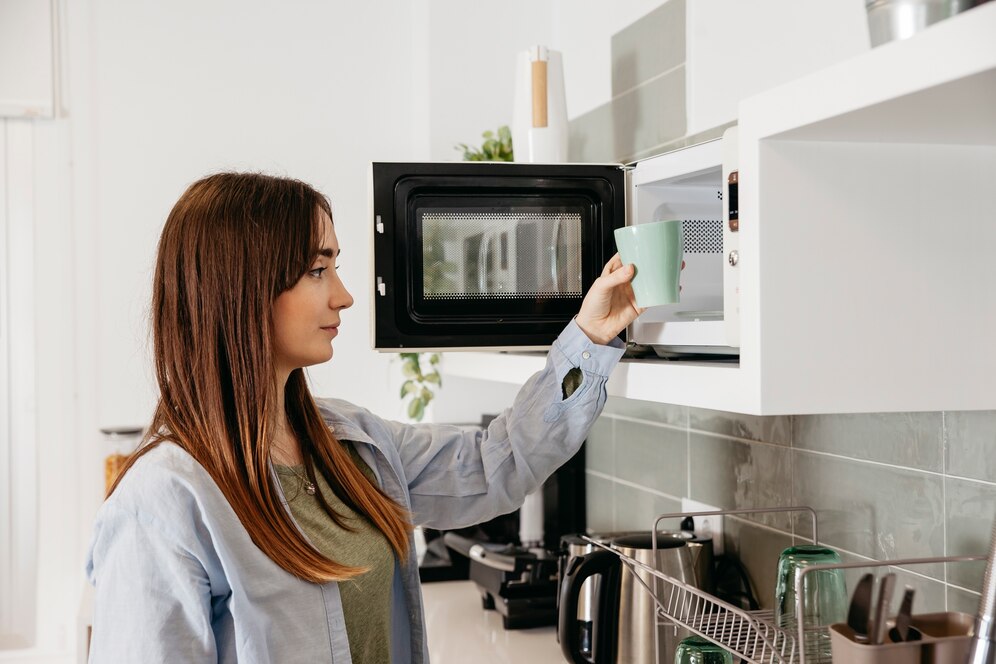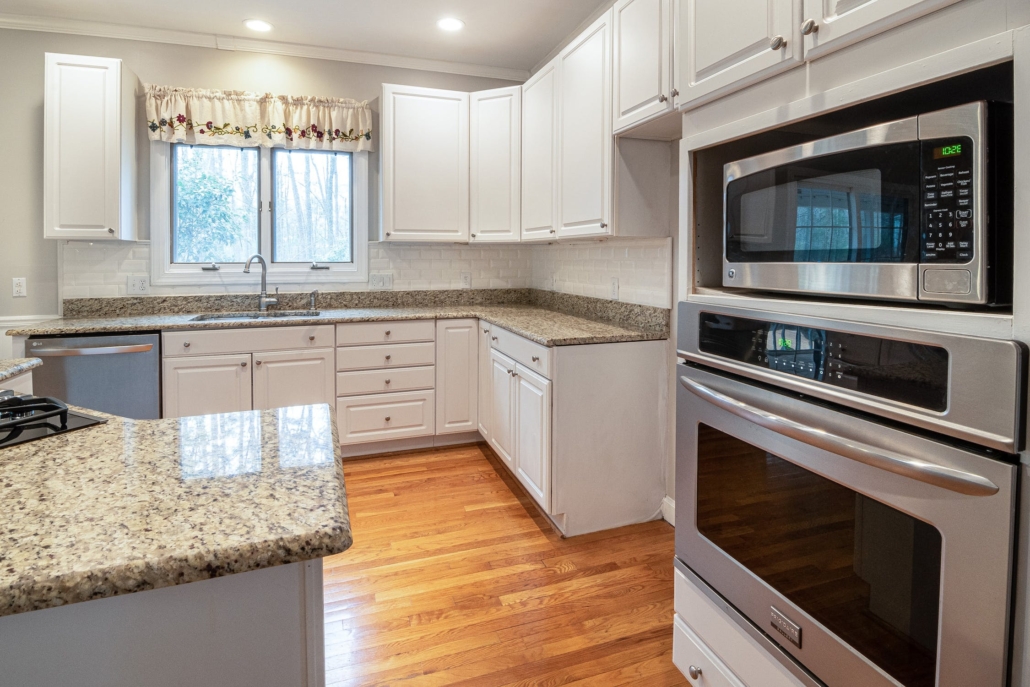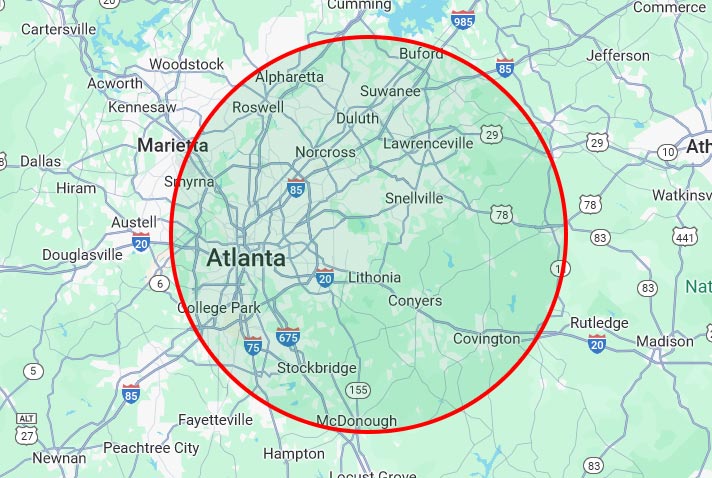Microwave Safety Tips Every Homeowner Should Know
 Microwaves have become an indispensable part of most household kitchens. They provide convenience and speed when it comes to heating up food or cooking meals, making them an essential part of our daily lives. However, just like any other appliance, microwaves can pose potential safety hazards if not used correctly.
Microwaves have become an indispensable part of most household kitchens. They provide convenience and speed when it comes to heating up food or cooking meals, making them an essential part of our daily lives. However, just like any other appliance, microwaves can pose potential safety hazards if not used correctly.
In this article, we will discuss the top safety tips every homeowner should know when it comes to using and maintaining their microwave. We’ll also cover what issues to look out for and when to call for microwave repair.
Summary:
- Keep Your Microwave Clean
- Use Microwave-Safe Containers
- Don’t Overload Your Microwave
- Don’t Run an Empty Microwave
- Keep a Safe Distance
- Don’t Defrost Meat at Room Temperature
- Watch for Signs of Damage
- Have Your Microwave Serviced Regularly
1. Keep Your Microwave Clean
Keeping your microwave clean is not just about maintaining its aesthetic appeal, it’s a crucial safety measure as well. Over time, food particles and residue can accumulate in the microwave, leading to a potential fire hazard.
It’s vital to promptly wipe up any spills or splatters inside the microwave after each use. Not only does this prevent build-up but it also stops the growth of bacteria and other germs that could contaminate your food. Regular cleaning can help optimize the microwave’s performance, ensuring that it heats food evenly and operates efficiently.
2. Use Microwave-Safe Containers
When using your microwave, it’s imperative to only use microwave-safe containers. Not every type of material is safe for microwave use, and some can even cause fires or chemical leaching. According to the FDA, materials like glass, ceramic, and certain types of plastic are generally safe to use in the microwave.
However, avoid using containers with metallic paint or trim, as well as aluminum foil, as these can spark and potentially cause a fire. Also, refrain from microwaving food in take-out containers or Styrofoam, as they can melt or warp. Always look for the ‘microwave-safe’ label on any container before putting it in the microwave.
3. Don’t Overload Your Microwave
Overloading can cause excessive heat within the microwave, possibly damaging the appliance or even leading to a fire. It’s also important to avoid heating items not approved for microwave use, as they may cause sparks or fires as well.
It’s also worth noting that filling your microwave to capacity with food or containers can lead to uneven cooking, causing some parts of the food to be undercooked, which could potentially lead to foodborne illness.
4. Don’t Run an Empty Microwave
Running an empty microwave is a common mistake that can actually lead to significant damage. When a microwave runs without food or any substance to absorb the microwaves, the microwaves can bounce back to the magnetron and cause overheating, potentially leading to a fire or damaging the oven. In fact, running a microwave empty could cause the appliance to burn out.
5. Keep a Safe Distance
Keeping a safe distance is a crucial aspect of microwave safety that every homeowner should understand. Microwaves emit a form of radiation that can potentially cause harm if you’re exposed to high amounts over an extended period.
The FDA recommends being at least one foot away from a microwave in use to limit exposure to this radiation. Keeping a safe distance can also prevent accidental burns from hot food or containers taken out of the microwave, so it’s best to stand back.
6. Don’t Defrost Meat at Room Temperature
Defrosting meat at room temperature may seem like the quickest and easiest option, but it can be hazardous to your health. Bacteria multiply rapidly at room temperature, increasing the risk of food poisoning. Always defrost frozen foods in the refrigerator or by using the defrost function on your microwave.
7. Watch for Signs of Damage
 Over time, microwaves can sustain various types of wear and tear that may not always be immediately apparent. Common signs of damage include a faulty door seal, unusual noises, or inconsistent heating. It’s also important to watch for a bent or warped door, damaged door seals or sealing surfaces, or a broken or missing door hinge.
Over time, microwaves can sustain various types of wear and tear that may not always be immediately apparent. Common signs of damage include a faulty door seal, unusual noises, or inconsistent heating. It’s also important to watch for a bent or warped door, damaged door seals or sealing surfaces, or a broken or missing door hinge.
If your microwave shows any of these signs, it’s best to stop using it and consult with a repair company. Using a damaged microwave can lead to potential hazards, including the risk of fire or exposure to harmful radiation. If you notice any damage, stop using the microwave immediately and call a microwave repair service.
8. Have Your Microwave Serviced Regularly
Just like any other appliance, microwaves need regular maintenance to ensure it’s working safely and efficiently. It is recommended to have your microwave serviced by a professional once every year or if you notice any performance issues. This will not only keep your microwave in good condition but also help prevent potential safety hazards. If your microwave is sparking, then it may be time to consider replacing your microwave.
In conclusion, following these safety tips can help keep you and your family safe while using your microwave. However, if you encounter any issues with your microwave, it is best to leave the repairs to a professional appliance repair company. Comfort Appliance Repair offers reliable and affordable microwave repair services in Covington and the surrounding areas. Contact us today for all your appliance repair needs.
By Dennis Godynuk, Owner of Comfort Appliance Repair
Dennis Godynuk is the owner of Comfort Appliance Repair in Covington, GA. Comfort Appliance provides fast and reliable repair services for all major household appliances. Dennis and his team of experienced technicians can tackle any problem, from broken refrigerators to malfunctioning dishwashers, and their prices are very competitive. Customers can rest easy knowing that their appliances are in good hands when they call Comfort Appliance Repair.



